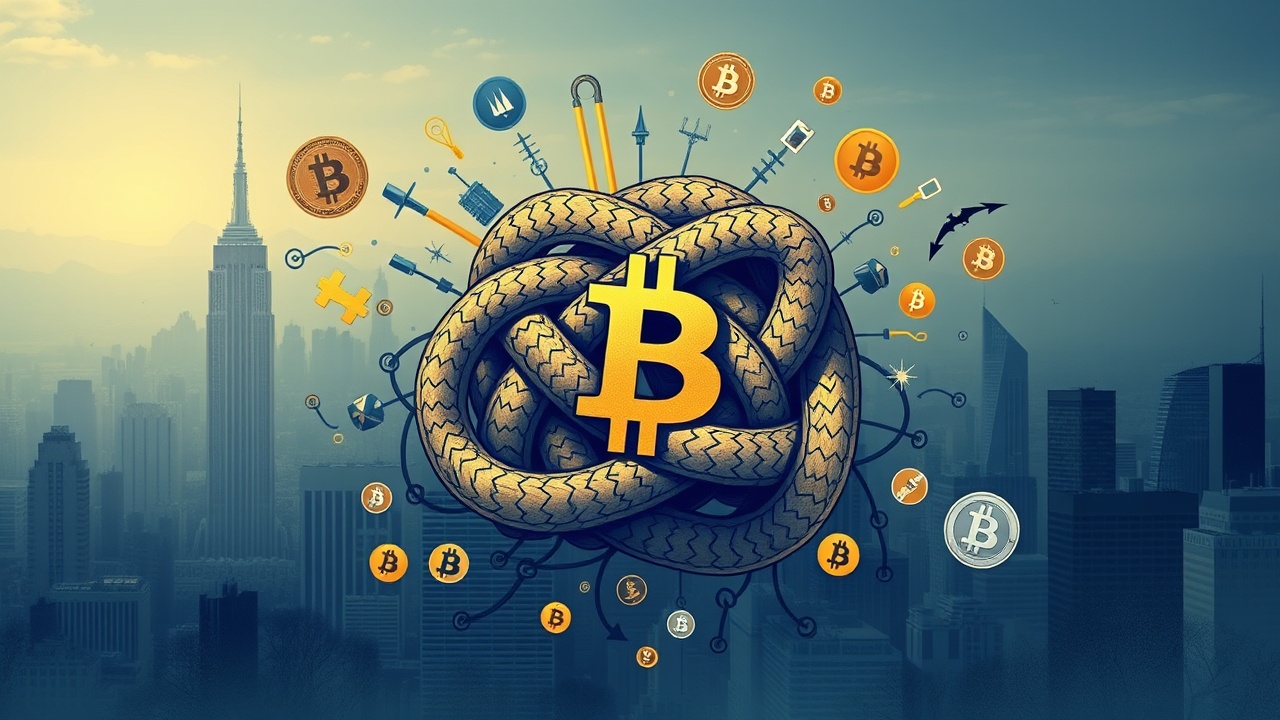Escalating Friction in the Bitcoin Community
The ongoing friction between two prominent Bitcoin factions has escalated beyond mere technical discussions, delving into the realm of identity politics and ideological differences. Recently, the term “woke,” originally used in the African-American community to signify awareness of social injustices, has taken on a derogatory connotation. This term is now being used by some conservative critics to mock leftist activists. Surprisingly, advocates of the Bitcoin Knots have adopted this terminology to disparage supporters of Bitcoin Core.
The Evolution of the Term “Woke”
Since its inclusion in respected dictionaries like Oxford and Merriam-Webster in 2017, the word “woke” has morphed into a broad descriptor for progressive beliefs. This shift raises questions about how a movement traditionally rooted in libertarian principles has found itself compared to the likes of prominent liberal figures.
One proponent of Bitcoin Knots expressed concern on social media, suggesting that “the Woke Mind Virus has infiltrated Bitcoin Core” and urging fellow supporters to adopt Knots as a response, asserting that true monetary values lie in Bitcoin’s foundation.
But the discourse around this ideological rift is not so straightforward. Veteran Bitcoin developer Jimmy Song has speculated on whether this division truly represents distinct left-right political lines or if the accusations of wokeness are merely tactics intending to discredit Core supporters.
The Ordinals Protocol and Its Impact
The discontent between the two groups can be traced back to early 2023 with the inception of the Ordinals protocol, which has sparked intense debate across the community. This protocol utilizes enhancements to Bitcoin’s software that have made it possible for non-fungible tokens (NFTs) to be embedded in the blockchain, referred to as “inscriptions” by its creator, Casey Rodarmor. The introduction of NFTs on Bitcoin drew significant backlash, particularly from Luke Dashjr, a notable developer who branched off the Core client to create Bitcoin Knots. Dashjr condemned the Ordinals as detrimental to Bitcoin and developed a system to filter out NFT transactions from the network.
The conflict intensified further when Core developers announced an upcoming version that would significantly expand the capacity of a specific metadata field, likely leading to an influx of NFTs and raising concerns about illegal content, particularly child exploitation materials. Dashjr described this change as an attack on Bitcoin’s integrity, citing years of successful spam filtering that would now be undermined.
Political Undertones in Technical Debates
As the technical debate evolved, it took on more politically charged undertones. Song theorized that the developers behind these advancements predominantly reside in politically liberal strongholds like New York and San Francisco, while the opposition stems from regions traditionally aligned with conservative values, like Texas and Florida.
Interestingly, some of these liberal developers have connections to influential organizations, such as Block led by former Twitter CEO Jack Dorsey, who has also invested in Dashjr’s mining initiative. The current dynamics surrounding Bitcoin Core’s updates reflect a struggle for control that has implications beyond technology, hinting at moral and ethical considerations.
Accusations and Ideological Clashes
Accusations of wokeness particularly relate to Core’s push to alter metadata size against substantial resistance, which critics describe as a form of distributed authoritarianism. In contrast, Knots supporters highlight their commitment to self-sovereignty and the foundational monetary principles of Bitcoin as central to their opposition. Meanwhile, some industry figures have observed the ideological clash with skepticism. For instance, Jameson Lopp argues that it is the Knots faction that displays authoritarian tendencies, while Adam Back finds humor in the suggestion that the Core side embodies leftist principles.
Conclusion: The True Nature of the Conflict
At this juncture, the dividing line of ideology seems less concrete than previously thought. While wokeness has injected itself into the discourse, the true conflict may stem from fundamental disagreements about Bitcoin’s direction and purpose rather than neatly fitting into a left-right framework. Ultimately, many within the community, including Back, assert that Bitcoin’s essence is its apolitical nature, reflecting a diverse spectrum of individuals across various cultural and political backgrounds engaged in its adoption.




